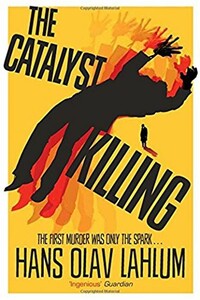Satellite People | страница 112
I heard myself saying that I was a liberal young man under forty too, and did not wish to cause any problems for him. So I suggested that we meet in a cafe on one of the side streets off Karl Johan, the main shopping street, at midday, and added that there was a reasonable chance that his name could be kept out of the public eye if he answered all my questions. He assured me that he would do as much as he could to help solve the murder and promised to be waiting at a table at the back of the cafe at midday. Then he put down the phone.
Left alone with the dialling tone, I decided that I had managed to clear up some of the mystery surrounding Leonard Schelderup, but that I was still far from solving his murder. I sat there and speculated idly about where on earth I had heard his guest’s voice before. But that was a mystery that would hopefully be solved soon enough. So in the meantime I let it go, having first gone through a quick elimination round to make sure that it did not belong to anyone I had met in the course of the investigation.
II
As there were no better clues to follow up in the Leonard Schelderup case, I turned to the overgrown paths from the Second World War for the rest of the morning.
The first thing I encountered was a setback. The census records for Arild Bratberg stopped with the note that he was registered dead on 14 March 1969. He was recorded as living at an address in Rodeløkka, but according to his file had also spent substantial periods in Gaustad Mental Hospital. He was last registered as leaving there in December 1968, following a sojourn of one year.
I finally managed to get hold of the head doctor who had been responsible for the ward where Arild Bratberg had stayed during his last periods there.
The doctor’s voice on the other end of the phone was deep-frozen to begin with. Fortunately it then thawed somewhat when he realized that I was ‘that well-known detective inspector from the newspapers’, and that the case might also be connected to the ‘much-talked-about and very interesting Schelderup murders’. By this stage he was almost friendly.
The doctor was willing, ‘between you and me’, not to make too much fuss about confidentiality, given that the person in question was dead and had no family. He could therefore tell me that Arild Bratberg’s death had been long anticipated. He had for many years been a ‘committed chain-smoker and heavy drinker’, and had developed lung cancer. At his own wish, he had been discharged so that he could celebrate Christmas at home and then die. The doctor added that there might well have been a celebration at Bratberg’s home in Rodeløkka, but it was not likely that there had been many guests. Both his parents were dead and his siblings had not been in touch for years. The doctor said, by way of explanation, that seeing Bratberg was often not a pleasant experience.




